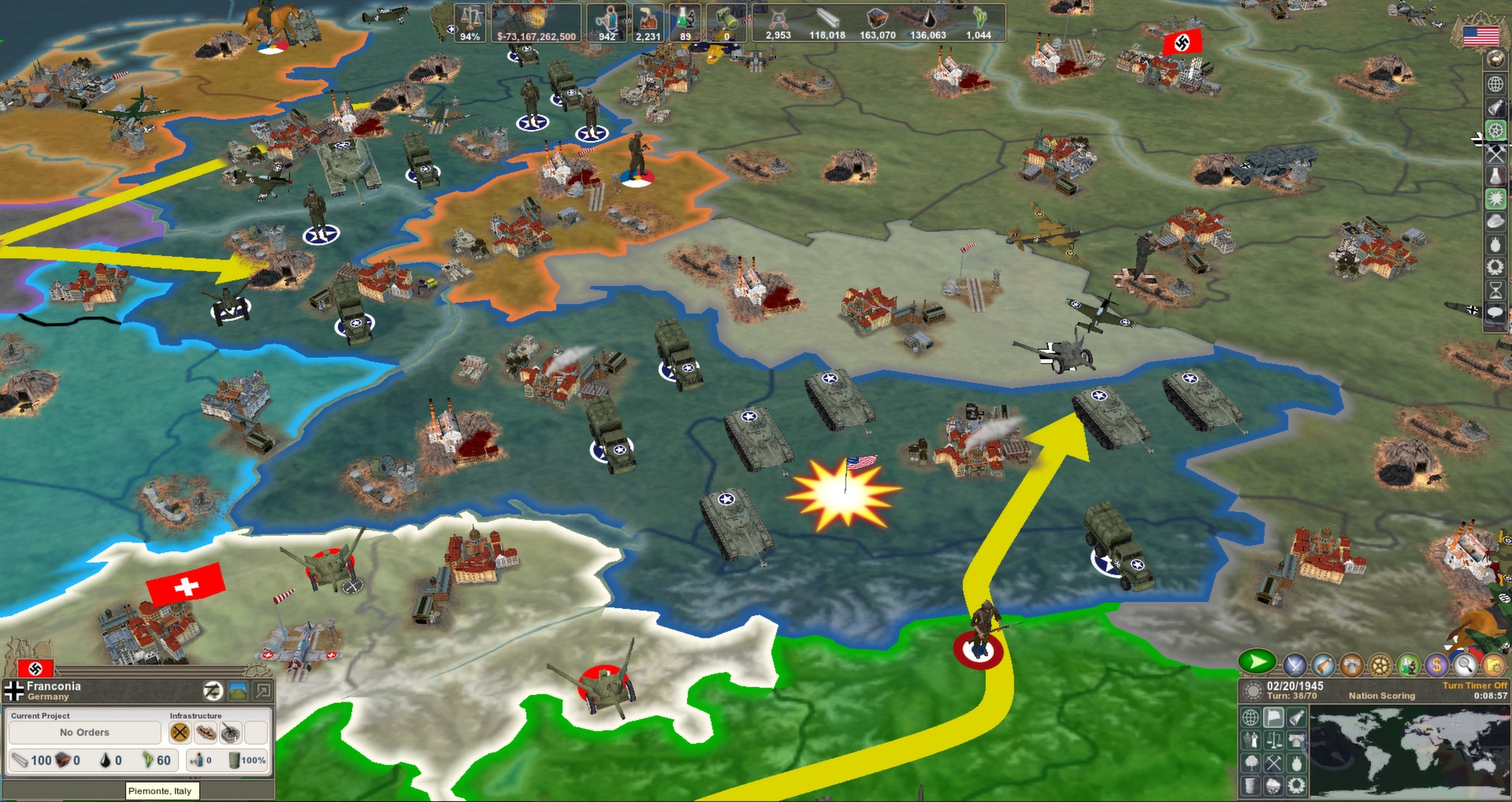I’ve written hundreds of reviews, previews, and retrospectives during my twenty-odd years as a games inspector. As many of these appeared in the British version of PC Gamer magazine and nowhere else, now and again something from my archive may appear as one of THC’s daily posts. Why did a WW2-era grand strategy title that currently enjoys a ‘Very Positive’ review rating on Steam score a measly 30% in PC Gamer on release in 2010? Read on.
(The screenshots accompanying this piece show the latest version of MH2 not 1.07, the version reviewed.)
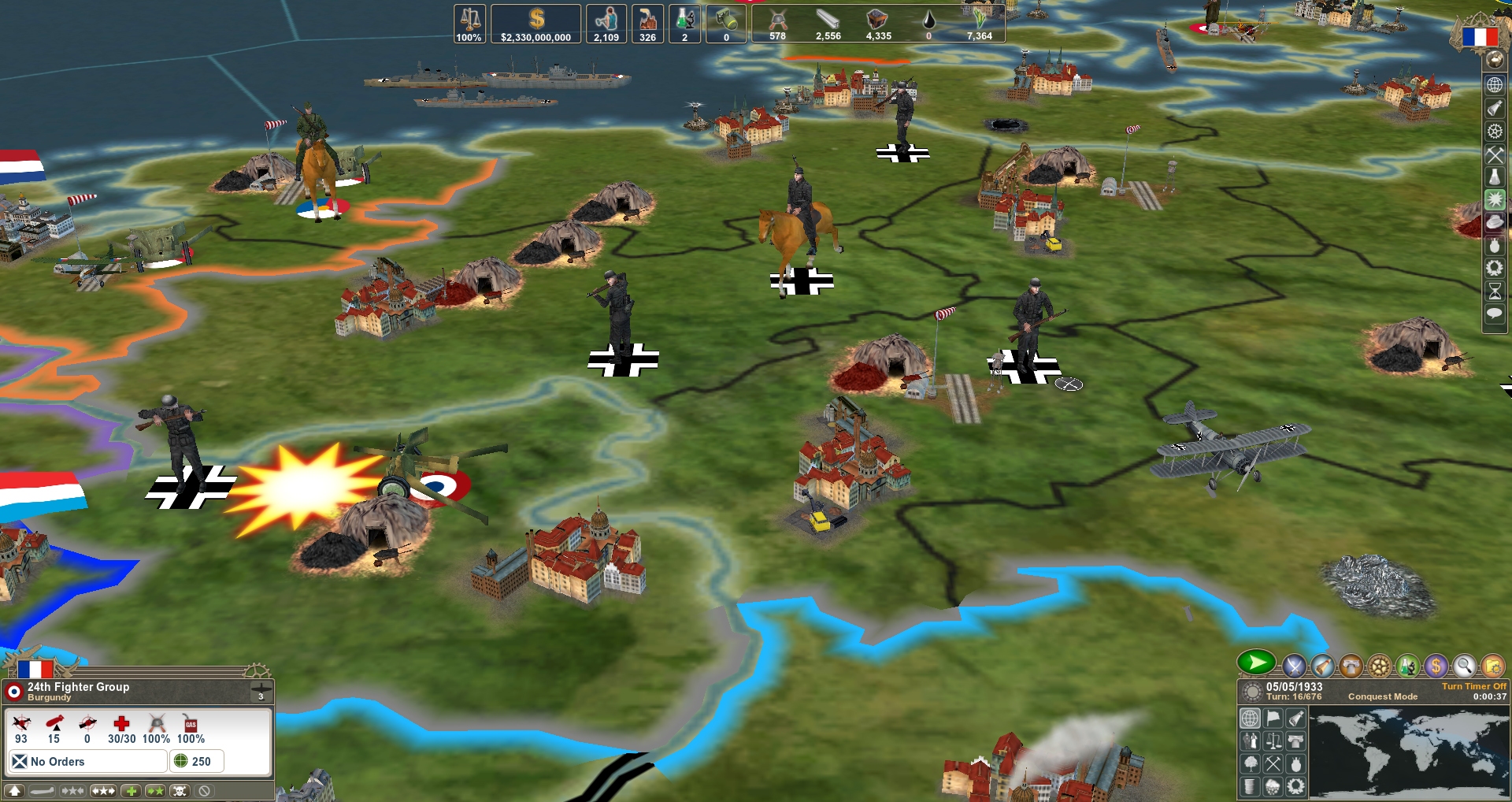
How frightfully naïve of me. I’d assumed the ‘II’ in the title of this turn-based grand strategy goliath signified that it was a sequel. Now that I’ve played the thing, I realise it’s actually a reference to the framerate.
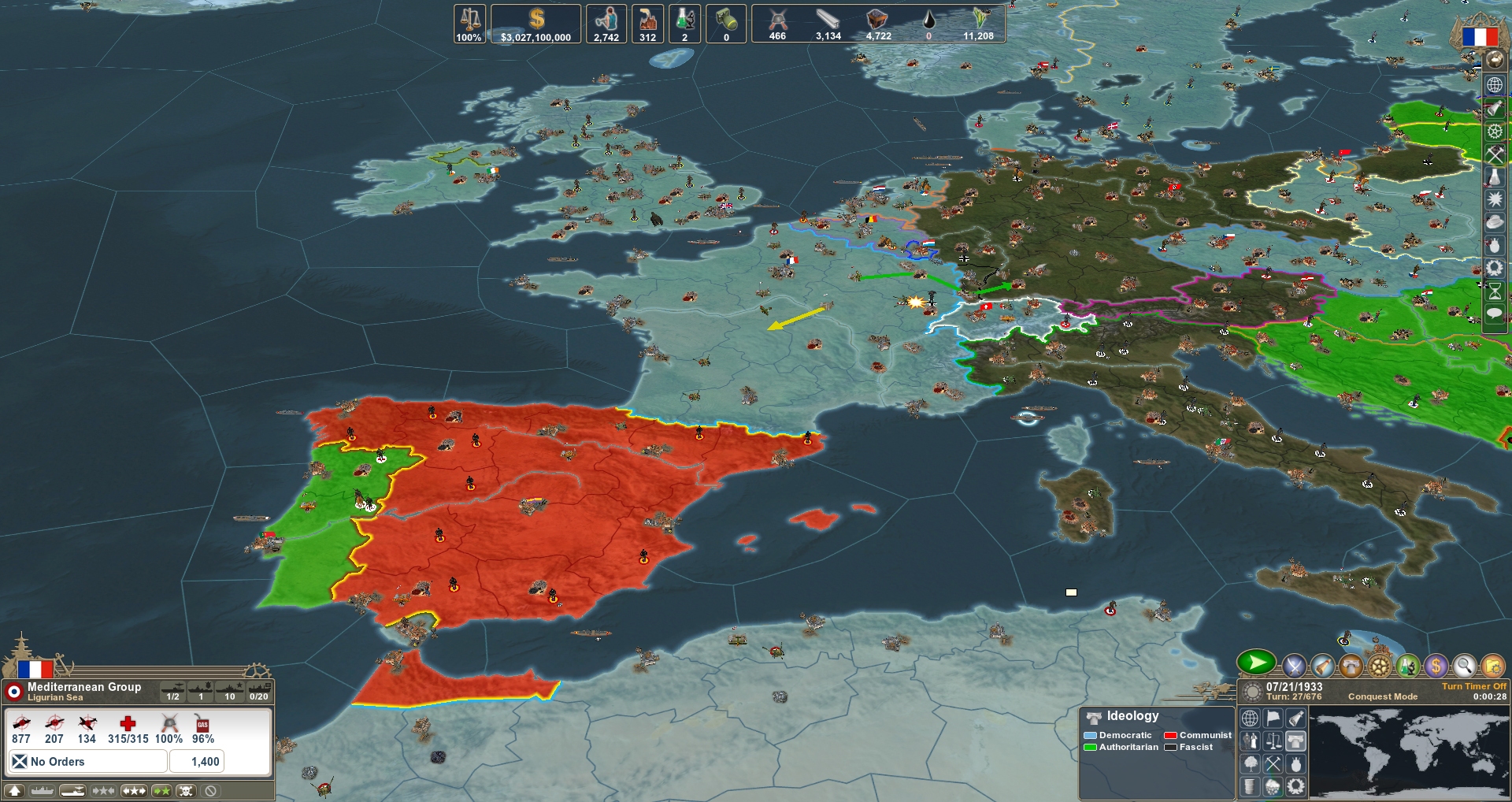
On a dual-core system that runs Hearts of Iron 3 and Empire: Total War effortlessly, Making History II moves with the natural elan of an arthritic badger. An arthritic badger that’s just had its hind quarters squashed by a Sherman tank. Scrolling the pretty global map is like trying to spread chilled butter on soft bread. You could open a can of beans in the time it takes to open a city menu, and load a dishwasher in the time it takes to load a savegame.
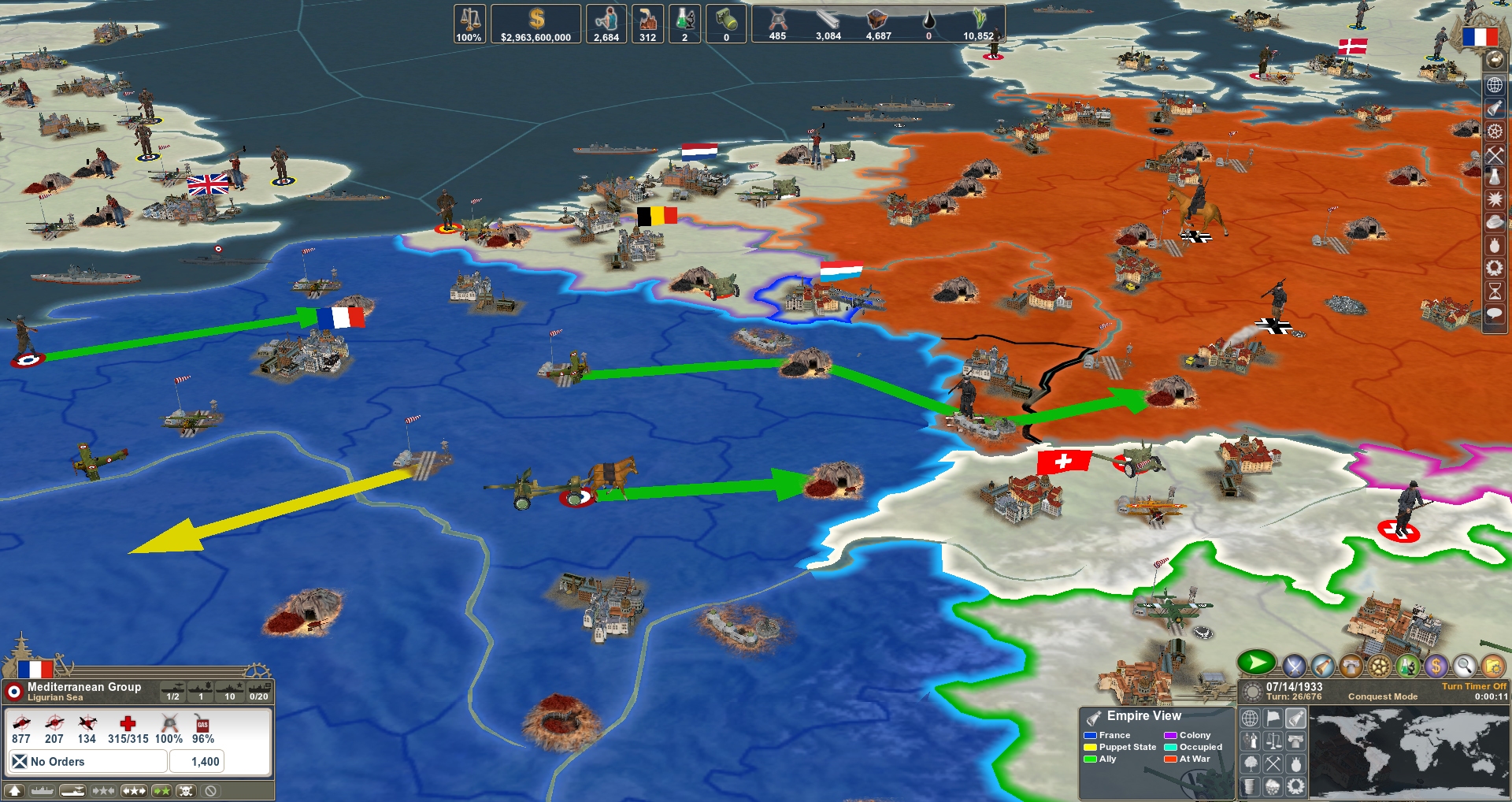
The feeling that Muzzy Lane have bitten off more than they can chew, both technically and conceptually, intensifies the more you play. For my first foray into 30s geopolitics I chose ‘The German Question’ from the three available scenarios, and France from the list of 80-odd playable states. Seventy laggy turns later (one-turn = seven days) I’d conquered most of continental Europe including the Third Reich and Mussolini’s Italy, and done it all without building a unit, using an aeroplane, or garrsioning a captured territory. I didn’t so much feel like I was making history as mocking it.
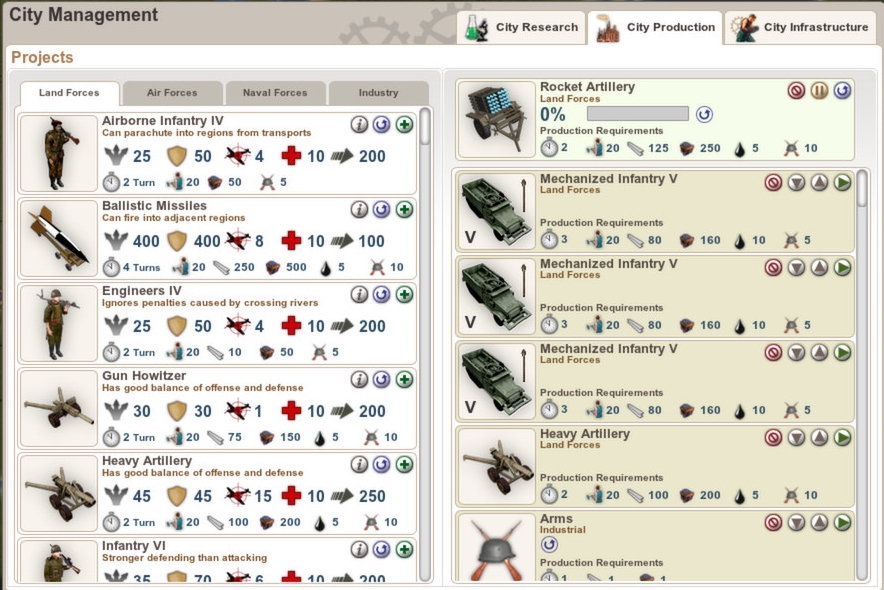
Game two was slightly more plausible. This time I opted to play as a techno Franco. Spain, sitting aloof from WWII, was to be transformed into a scientific powerhouse. Fifty turns in, with most of the huge tech tree still towering above me, I gave in to temptation and invaded Portugal and Ireland. The British alliance responded forcefully – credibly even – with an amphibious landing in Belfast. MH2 was just beginning to show a smidgeon of promise when a crash undid all the good work.
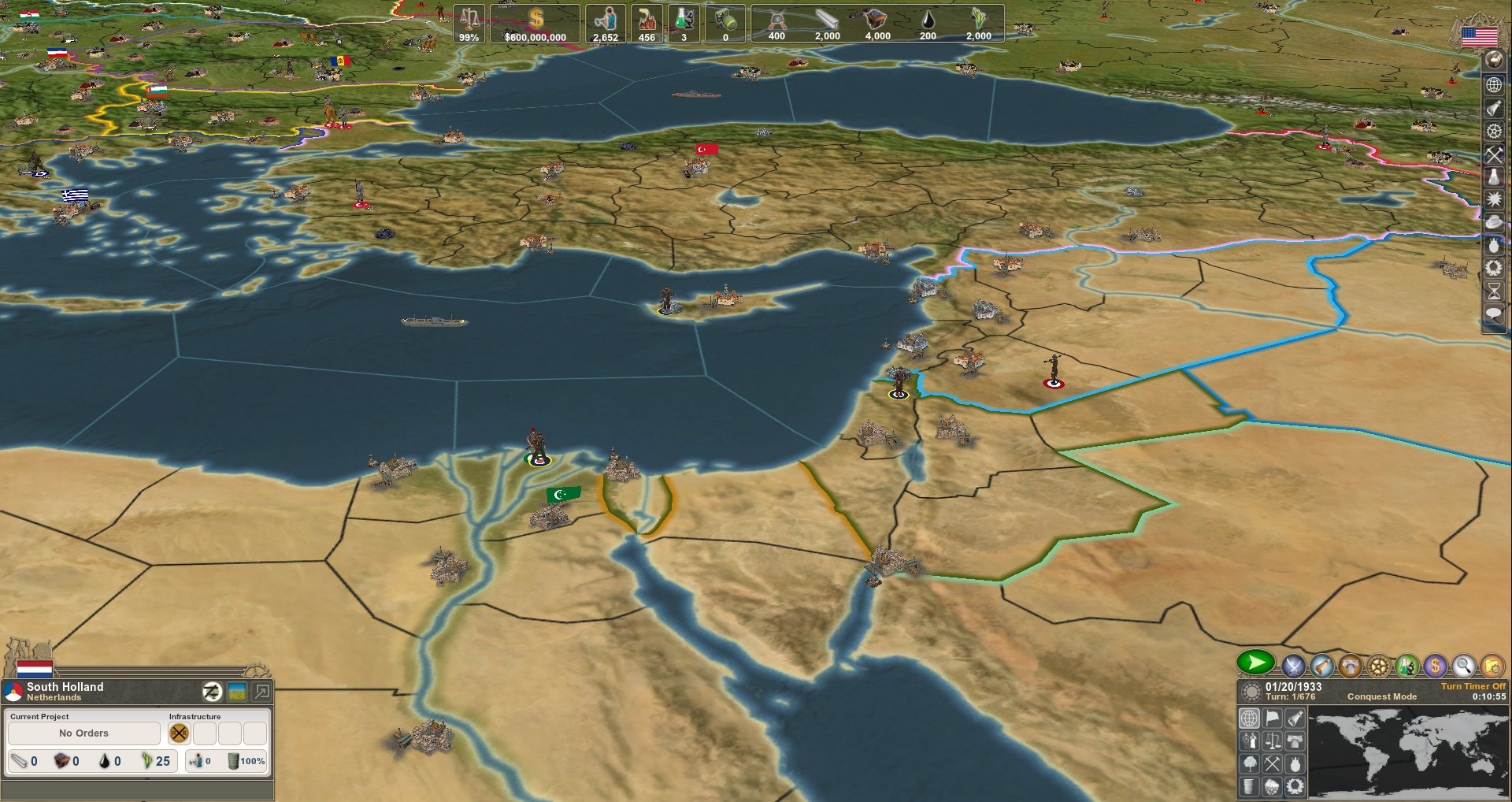
Session three and four ended in the same frustrating fashion. If ever a game needed another year in the code womb, this is it. The extra time would have given Mussy a chance to debug, inject a little more sense into the strategies of AI states, properly balance the five-resource economic system, and flesh out woefully weak areas like diplomacy, ideology, an espionage. Currently, the different government types have no domestic effects, and it’s impossible to butter-up hostile neighbours or improve your covert capabilities.
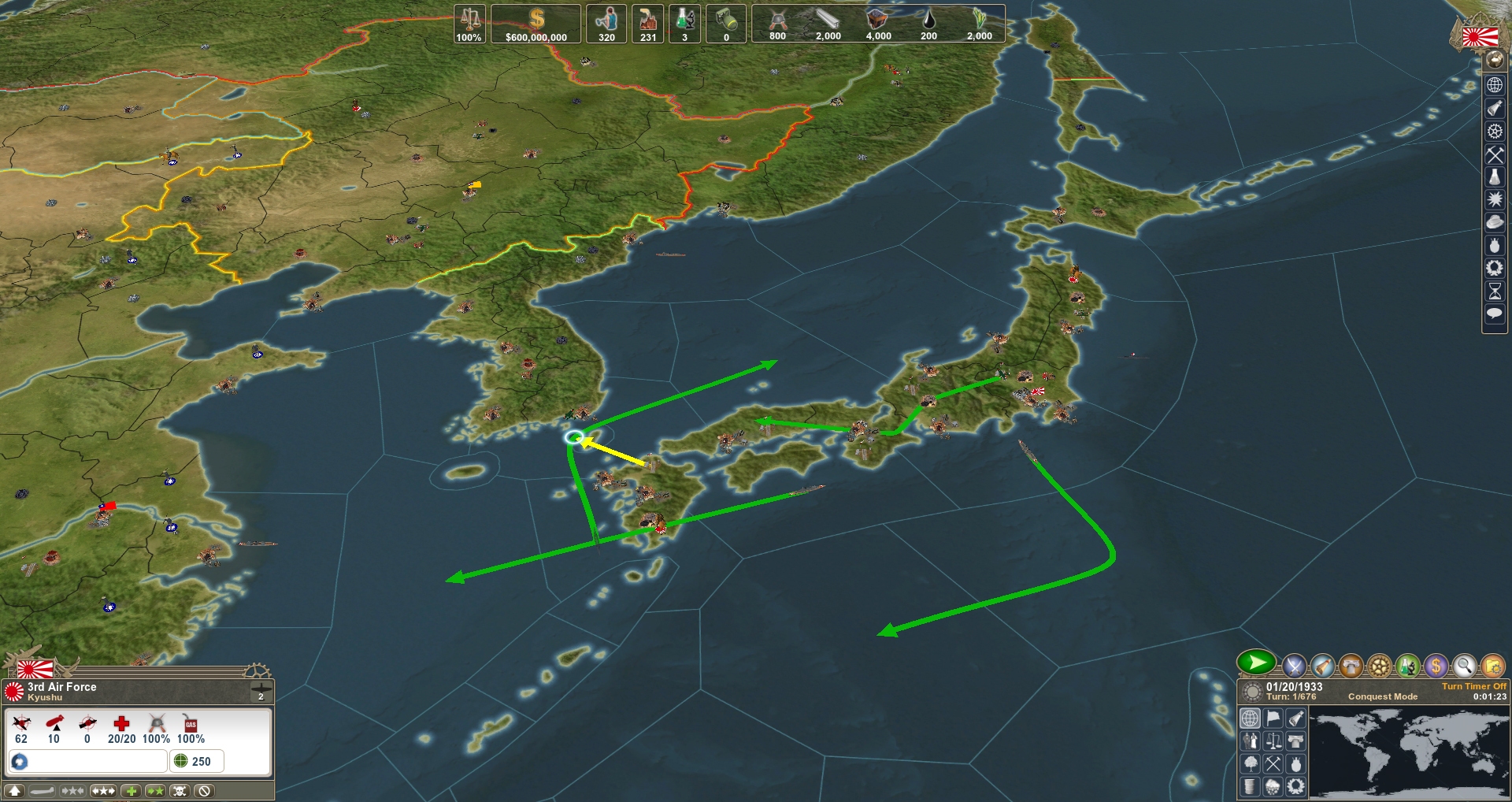
A delay would also have permitted a documentation rethink. The absurd 20-page ‘manual’ found in the boxed version is about as much use as Chamberlain’s Munich souvenir.
All of the big Hitler-em-ups – HoI3, Strategic Command, Gary Grigsby’s World at War – have flaws, but none arrived in as parlous a state as Making History II. This is Muzzy Lane’s Dunkirk. I reckon they and their game will eventually recover, but it’s going to take a lot of blood, toil, tears and sweat.

